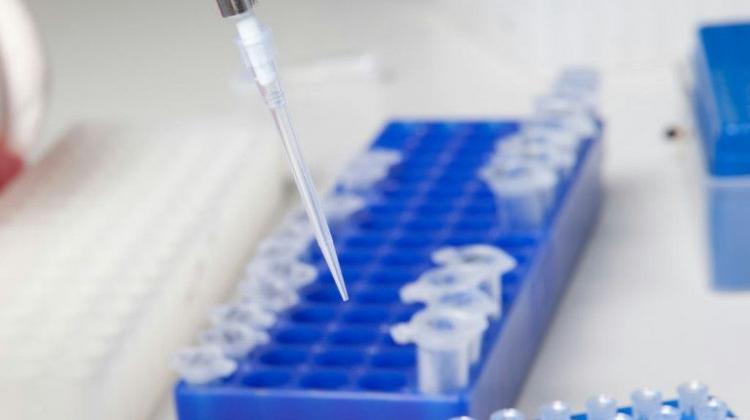Gdańsk/ Talks on the implementation of a bladder cancer test
 Photo: Fotolia
Photo: Fotolia
Talks are ongoing with business partners regarding the implementation of an innovative test that detects bladder cancer, the University of Gdańsk reports. The university scientists from the Faculty of Chemistry of developed an effective, quick test that can be carried out at home.
The University of Gdańsk spokeswoman Beata Czechowska-Derkacz informed about the ongoing talks, which could result in the market launch of a test invented by chemists from the university.
The spokeswoman explained that the research carried out on a group of 800 people showed about 90 percent effectiveness of the test. "The proposed method is an alternative to the ones currently used; it only requires taking a urine sample. Talks are currently under way with business partners regarding the implementation of the test" - informed Czechowska-Derkacz.
She added that the invention was submitted for patent protection in the European Union and in the world.
The spokeswoman reminded that a quick and non-invasive diagnostic test for the detection of transitional cell carcinoma, commonly referred to as bladder cancer, was developed by Prof. Adam Lesner and Dr. Natalia Gruba from the Biochemistry Analysis Laboratory of the Faculty of Chemistry, University of Gdańsk.
"The main advantages of the test include non-invasive testing, diagnostic effectiveness of the marker at the level of approx. 90%, short waiting time (less than 60 minutes), high effectiveness even in the early stage of the disease and the possibility of testing with a small urine sample (about 1 ml). The diagnostic method is easy to carry out" - explained Czechowska-Derkacz.
She reminded that the disease that the test detects did not have any symptoms in the early stage. "Every year, 4,000 people die of this type of cancer in Poland" - she added.
The test is based on the detection of proteolytic enzymes (causing the breakdown of proteins) that appear in the urine of a sick person. The presence of cancer cells in the urinary epithelium of a given patient is indicated by the tester colour change.
Currently, apart from speculum and ultrasound examinations, bladder cancer may be detected by microscopic analysis of cells present in urine.
The research conducted by scientists from the University of Gdańsk was financially supported by the UG Technology Transfer Centre in the Innovative Incubator+ project. The Centre and Incubator were established to strengthen the cooperation of the scientific community with business representatives. The projects are carried out by a consortium, whose members are the University of Gdańsk, Gdańsk University of Technology, Medical University of Gdańsk and special purpose company PG - Excento Sp. z o.o.
Support provided to researchers includes conducting additional research on the product, intellectual property protection and additional market analyses. (PAP)
author: Anna Kisicka
aks/ ekr/ kap/
tr. RL
Przed dodaniem komentarza prosimy o zapoznanie z Regulaminem forum serwisu Nauka w Polsce.















